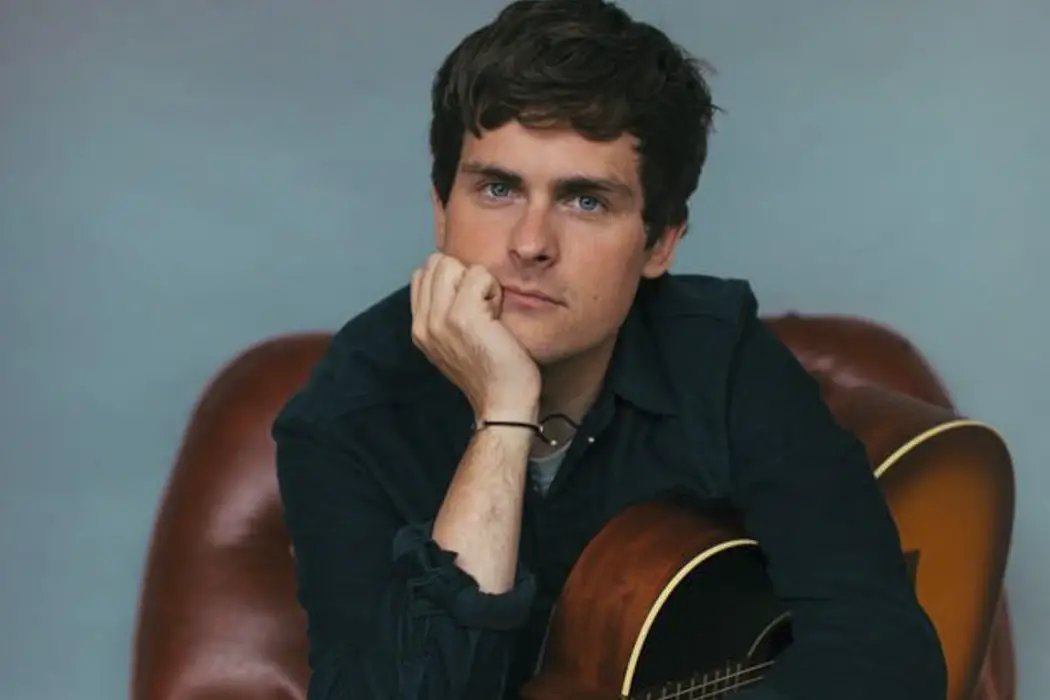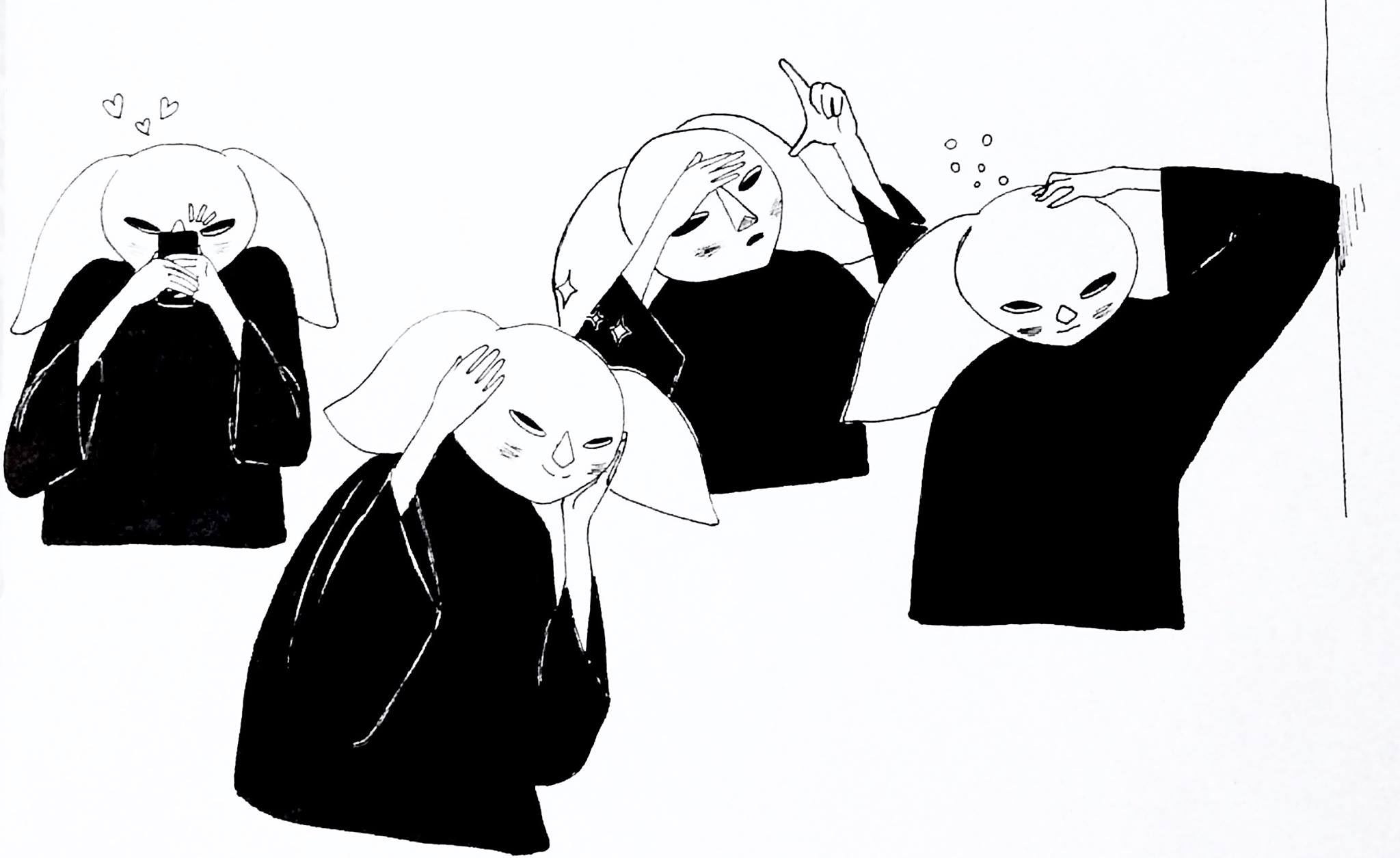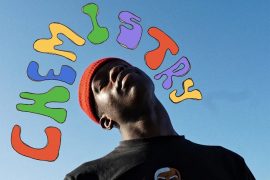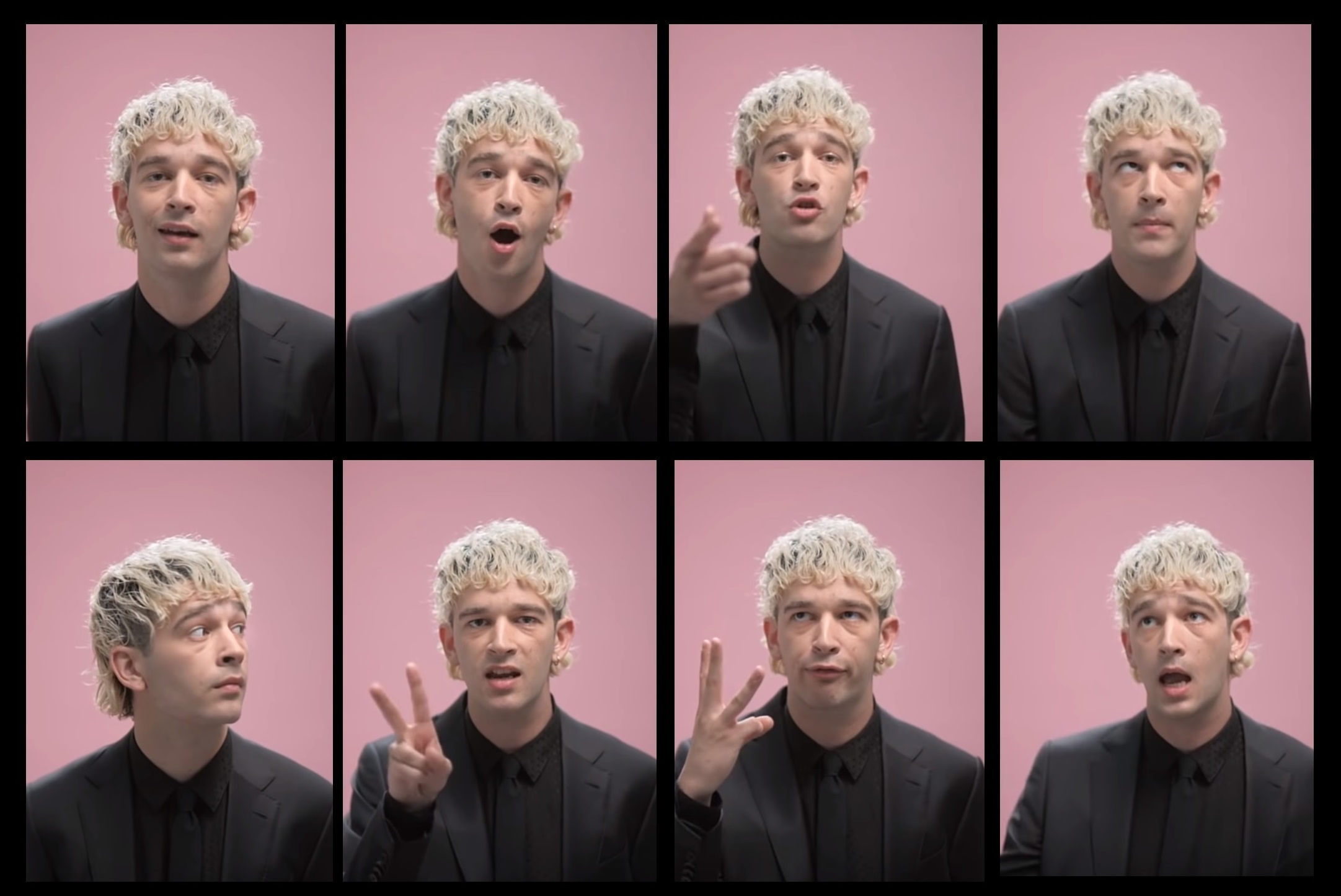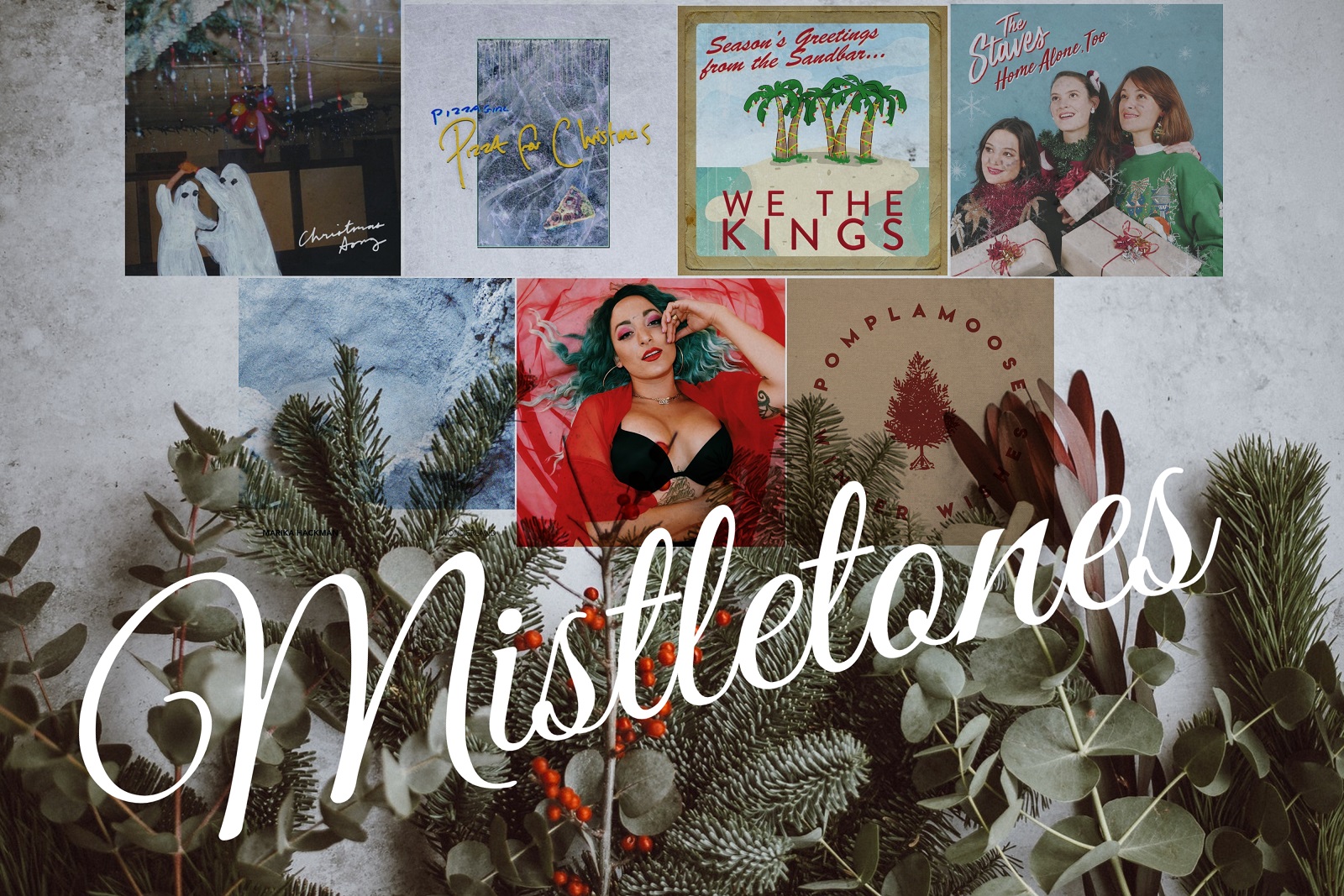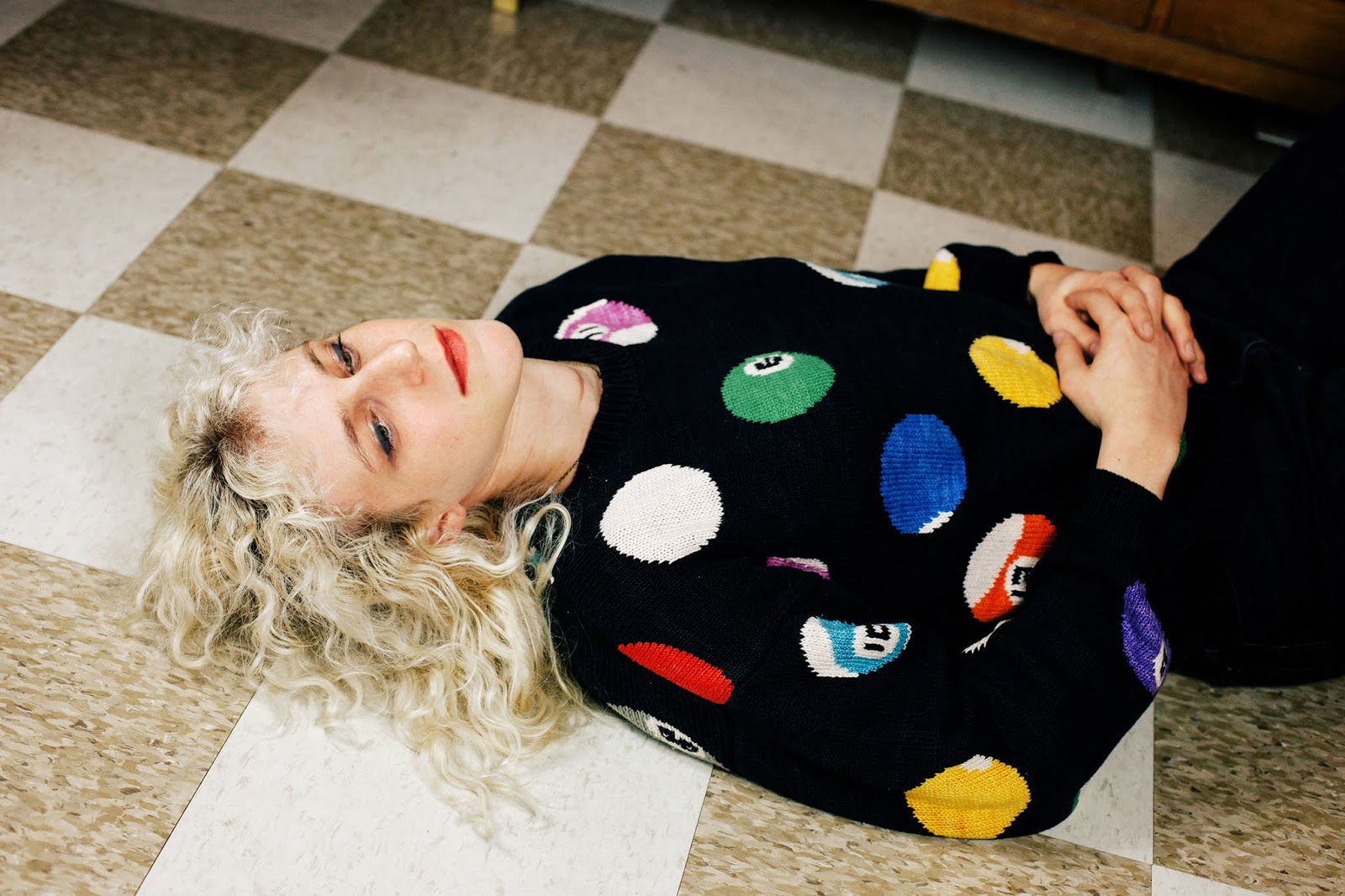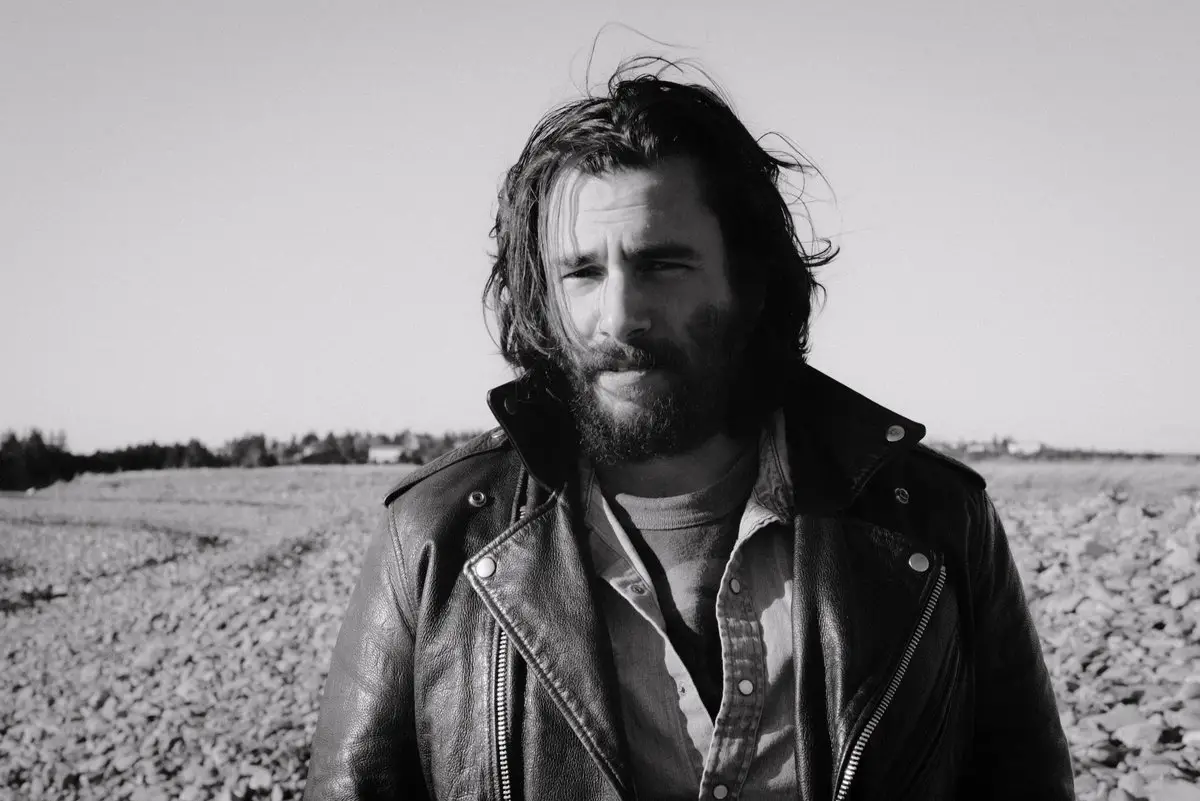British singer/songwriter and Atwood artist-to-watch Tom Speight opens up about the long road to his debut album ‘Collide,’ discussing the vulnerability and emotion in his stunning music.
Stream: ‘Collide’ – Tom Speight
Artist-to-watch Tom Speight fulfilled upon the tremendous promise of his work earlier this year with the release of his long-awaited debut album, Collide. Released April 12, 2019, Collide finds the British singer/songwriter marrying bright folk pop with deep, sincere emotions in such a way that takes listeners on a dazzling journey through the confines of Speight’s rich, expressive point-of-view.
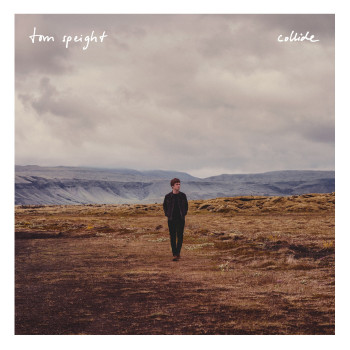
Two hearts and three lost words
Fall through the universe
And we collide when you ask me
Have you felt a certain rush between the two of us
And we collide for the first time
I belong with you
– “Collide,” Tom Speight
Few artists can make heartbreak feel like both a blast and a wretch; throughout the course of his debut, Speight manages to evoke a wide array of emotions whilst reflecting on matters of the heart and soul, personal well-being, and much more. In premiering his pre-release single “Want You” in late 2018, Atwood Magazine praised Speight as “the shining needle in a haystack” and the “kind of artist who makes loving fun, noting: “A pure, uplifting, and positive love song, “Want You” is the musical manifestation of passion and tenderness. Intimate lyrics find Speight head-over-heels in love, proclaiming his adoration to the one he loves, and celebrating that feeling with the whole world.”
A delightful rush of euphoric guitars and joyous vocals, “Want You” heralded Speight’s return after a series of hospitalizations that threatened to at one point curb his music career entirely. Speight suffers from the chronic illness Crohn’s disease, which he has been increasingly transparent and open about in the past few years. “spending two months in hospital battling with Crohn’s while my relationship slowly breaks down… not knowing when I’ll get better… when I will get back to doing music. I honestly didn’t know if I would finish this album,” he posted to Facebook last year.
Inspired by loss, illness, hope, and love, Collide is the engaging, emotional debut record Tom Speight was always meant to make.
Thirteen majestic songs track the singer/songwriter’s journey through sound, finding him embracing sweet harmonies and basking in a radiant wash of acoustic and electric guitars, with the occasional violin or synth mixed in for boosted effect and added impact. This relatively simple setup proves extremely effective for Speight, whose focus on song quality means every track shines with its own special glow – whether that comes in the upbeat form of “Want You,” or more nuanced and dark emotions as in the single “Strangers Now,” which Speight co-wrote with Lisa Hannigan. Reviewing the song last year, Atwood wrote, ““Strangers Now” is a stunning display of emotional maturity… Speight captures the uncomfortable tensions of a relationship on its last legs, yet what we feel is not the bitterness or darkness of amplified miscommunications and nights gone unspoken; instead, we feel the loss inside of that special someone who meant the world to us.”
The beauty of Speight’s artistry comes to bear especially in the moving heartbreak song “Alice” and the touching title track “Collide,” in which the artist bounces between his evocative chest voice and a haunting falsetto whilst singing a celebration of love’s connection and heavy weight. “You are with me from the end to the start,” he sings in the chorus, “When gravity pulls on us.” It’s a testament to his songwriting talent that Speight manages to make old emotions feel new again.
Two hearts and three lost words
Timeless when lovers hurt
And we collide when you ask me
Calling on past and present
Like its irrelevant
And we align for the first time
I belong with you
With autumn now closing in on the Northern Hemisphere, Speight’s breezy folk pop feels increasingly pertinent and apropos. Intimate ballads like “Closer” and “Alice,” and groovier jams like “Heartshaker” and “My Name” all feel at home in the color-changing world of October. This month will also feature Tom Speight’s first North American tour (click for dates & more info), as he comes to New York on the 16th.
Tom Speight dove deep into Collide with Atwood Magazine, opening up about the long road to his debut and discussing the vulnerability and emotion in his stunning music. Collide affirms Tom Speight’s place as one of today’s greatest modern folk singer-songwriters, placing him in the company of artists like American Henry Jamison and Canadian Donovan Woods.
Get to know this incredible talent through our interview below, and don’t miss Speight on tour this year!
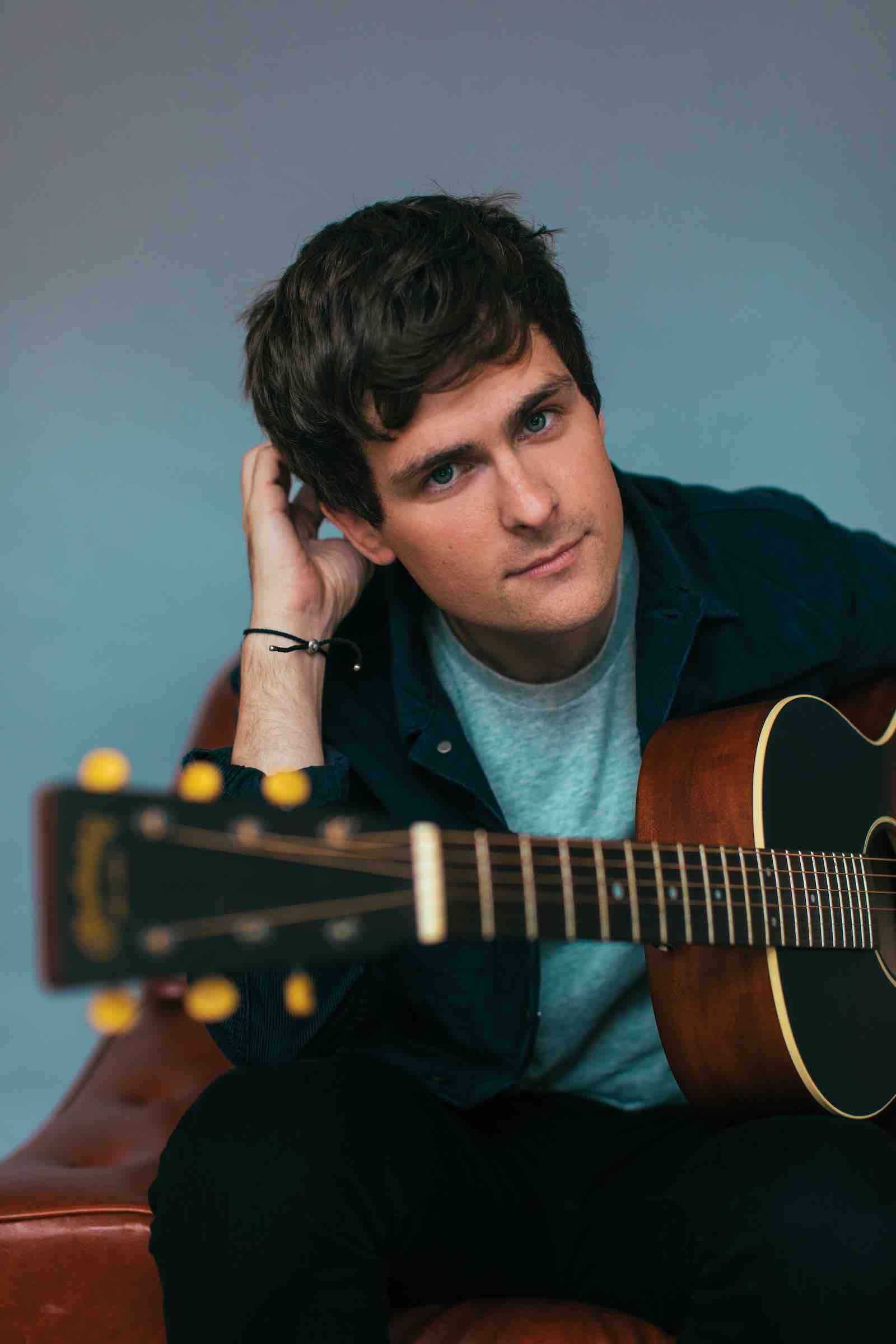
A CONVERSATION WITH TOM SPEIGHT
Atwood Magazine: Shall we dive right in? Hello Tom!
Tom Speight: Yeah, let’s do it. Just before we dive in, thanks so much for your support so far.
Oh, you're very welcome. To be honest with you, I've loved your music ever since we did that “Want You” premiere so long ago now; it's been a pleasure going along for the ride with you. Thanks for having me along.
Speight: Always, always.
With that said, congratulations: Your debut album is out in the world!
Speight: It is, yes. Thank you! It’s taken a while, hasn’t it really? It feels like it’s taken a while, anyway.
What are you feeling right now?
Speight: I’m feeling pretty good. I’m feeling excited that it’s finally out and I’m really proud of it. I did so many EPs, like seven EPs I think it was in total, that it felt like the right time to do an album.
You beat The 1975 in terms of number of EPs.
Speight: (laughs) Yeah. I think EPs are great, but I’ve always been a big fan of listening to a big body of work like an album. It definitely felt like the right time and I think my relationship with Chris, the producer… We worked together for about three years at that point, and I felt like it was definitely the right time for us to really dive in and do a big body of work. I also had the songs. I wrote about six songs for the record, and it felt like I had the right amount of songs for the album.
You're saying that it felt like you had the right amount of songs, but what was it about these songs that made them album-worthy and not EP-worthy?
Speight: I think they felt like a collection of songs, whereas the EPs were kind of just snapshots of three months’ worth of work.
You spent longer working on this one, right?
Speight: I started planning to do the album on about the third EP – so I started reserving songs for the record from that point. I felt like, “I’m going to save this for the album because I think it will…” I didn’t want the album to be one mood as well, so I think that’s why it’s got upbeat songs, it’s got kind of very stripped back songs… It’s not just one thing, I don’t think. That was just the only way I thought I could achieve that, is by writing six songs to kind of have a pool of songs to choose from. And I felt like I don’t think I would have been ready to record an album after my first or second EP. I felt like I needed those EPs to develop as an artist and to have that time to grow to finally record a record.
You're how old now?
Speight: Oh God, I’m in my 30s. So I should I have released an album ages and ages ago, but I’ve had a few health setbacks. And the music industry, it’s a different thing that it was say 10 years ago. You know?
Very much so.
Speight: When we first started out which was about nine years ago, I was desperate for a major label to sign me. Then when I started putting out music in the last three years, with the first EP, the ‘Little Love’ EP, the climate and the way people consumed music had changed! I no longer needed to have a major label to release my music. That also is kind of another reason why there wasn’t an urgency to release an album. We were kind of just building things-
Independently and organically.
Speight: Yeah, independently and making sure that when we did release an album, it was going to be the right time to release it.
I really admire that, I do. One of the things that was part of your story and something that no one wants to be part of their story, but it's a fact of life - it's what they live with - is, you had spoken to me the other year about being back and forth in hospital. Was it Crohn's?
Speight: Mm-hmm, yeah. I don’t know how familiar you are with Crohn’s disease. Yeah, it’s a very up and down thing. People say to you, “Oh, you’re all okay now,” and it’s like, “Yeah, I’m okay at this minute but I can’t say what I’m going to be like in a month or two month’s time.” So it’s a very unpredictable thing and it kind of almost rears its head when you least need it, when you’ve got a stressful situation. I was making my album three weeks in, when my bowel perforated, so it was like kind of the worst timing, really. I was in the hospital for about two months trying to get out of the hospital, but that’s not perfect for making an album, really.

Do you think the album captures this, or do you think that you were able to make this record in spite of that?
Speight: It would definitely be a different album if it hadn’t have happened, because I wrote two songs while I was in hospital that made the record.
Oh, which two songs are those?
Speight: You can probably tell as well. So the songs, the first one was “Lost to Me” which is track six, which is kind of again a more stripped back song. Yeah, I wrote that… I had a week on my own in my own little room within a ward. Then the other one was “Alice,” which was the day I got out of hospital. Literally, the day I got out of the hospital, I wrote that one.
And another plus – not a plus, because I love those songs, but obviously I didn’t want to go through that experience – but a plus point was when I did come out of hospital, my enthusiasm and my energy was just completely focused on making the record basically. I think when you’re in a situation like that, your emotions are even more enhanced because when you enjoy something and love something like music and then you haven’t had that for two months and then get to do it, it’s very rewarding.
Yeah, not to mention the fact that hospitals have a tendency to force us to reckon with our own mortality and remind us that you don't have forever.
Speight: Yeah, you don’t have forever. That’s completely right. And you take things for granted, you know?
If you were to only write one record, would you be satisfied with this album that you've put out, this full-length record?
Speight: Yeah, I think so. I might feel differently in a couple of years. But this day, on release day, I’m really proud of it. I think it’s the best I could have done at this point.
So let's dive into that, because I have been loving this album for such a long time and obviously following the journey ever since I got the chance to hop on board. The actual album starts all the way back with your very first EP release because we have “Little Love” just two songs in.
Speight: Yeah. And the reason we left that on there is just because it started things and people instantly connected with that song, so it felt like it needed to be part of the story. And it’s a similar thing with a song called “Willow Tree” as well. That song’s eight years old, but again I wanted the 13 songs to be the best songs that I’ve got. That’s why I saved the songs from certain EPs. I just wanted to make sure that it was the best possible track listing I could have.
And it is such a strong track listing. We begin with “Waiting” - and I love your entrance, “Come and take my hand and travel the world. Come feel my heart and rip it apart.” Why do you start with this song?
Speight: Since I wrote that song, it’s always been the start of the gigs. We’ve done probably over 200, 300 shows, and it just felt like the first line was the perfect introduction to start the album really.
It's like a, “Hello, here's me, get to meet me!”
Speight: It’s like an invitation to say, “Look, come and join us for the ride,” basically. I think it’s a positive song that kind of sets up the palette of what we’ve been working with, really.
I really loved writing about and listening to “Strangers Now.”
Speight: I wrote that song with Lisa Hannigan, and we’ve got guest vocalist from Lydia Clowes! I think that’s probably my favorite, favorite single, probably.
No kidding. Why's that?
Speight: Yeah, I think so. I think it’s the strongest single. It’s not my favorite song on the album, but I think it’s the strongest single.
So what do you mean by that?
Speight: In the UK, we’ve released four singles from the album, which were “Want You,” “Heartshaker,” “Strangers Now,” and “Little Love” would be the fourth. So yeah, it’s my favorite of those four, but my favorite of the album is “Collide,” the actual song.
Okay, I understand what you're saying. Because “Strangers Now” is such a strong song; it's sort of the crossover between the singer-songwriter work that you've been so good at, but also it's this huge, strong anthem of, maybe not love, but connection.
Speight: Yeah. I think again, I wouldn’t have been able to produce or write that song or recordethat song on my first EP, because I think it is a different thing, you know? It’s a more confident performance and more ambitious, maybe.
It's a little more complex. So you said that “Collide” is your favorite song; why is that?
Speight: I do think it sums up what I do. I remember the producer, Chris, saying it’s… I think it’s what I do best. It’s that kind of style of song. I think it’s what I do best, it’s kind of… yeah, I don’t know how to describe it, but it’s hard to look yourself in the mirror and have a good understanding of what you are. But I think if I was going to play something and be like this is what I do, I’d play them that song. It’s hard for me to describe I do this, I do this, but I can say this is what I’d play someone if I was going to be like, “What does your music sound like?”
Something that you do so well, is you really talk about human connections and the experience of, not just one person to another person, but also ourselves with nature, with the world around us. “Collide” is all about connection.
Speight: Yeah, completely.
One of the things I think I really love about this song are the lyrics. “Two hearts and three lost words.” Can you bring me back to the writing of this song, and what that environment was like for you?
Speight: I fell very much in love with a girl that kind of just took me a way, that relationship. I was kind of powerless to it in a positive way. It was something I’d never felt before. It’s something I’d been waiting for, for a long time.
It's that feeling of really falling and not having any control over it.
Speight: Yeah, basically yeah. I wanted to write something that couples could be… It could be like a couples song without sounding too cheesy. I found myself writing breakup songs and I wanted to be like, “This is how I’m feeling and I’m going to write something like that.” Often when you write love songs, it’s kind of like a bit of a dirty word. It’s harder to write a love song than it is to write an angsty breakup song.
Interesting. It's interesting that you say that because I feel like there's some people who would say the opposite.
Speight: Oh really? Okay. I find it’s similar with songs like… It’s harder to write also summery upbeat songs without making them sound cheesy. That’s another difficult thing.

Interesting! As you get deeper into the record, I think one of the things we start to see is the diversity of your musicality. You really did start off in more of like a folk rock area, and it feels like you're kind of breaking into more pop, not in the Ed Sheeran pop phase, but in finding ways to say more with less. Do you know what I mean?
Speight: Yeah, yeah.
What's that transition been like for you? It feels like it's been very intentional, but it feels like it's obviously taken many years and it's a challenge for a songwriter.
Speight: I think again it falls back down to the confidence. I’m a fan of a lot of singer-songwriters, bands, and people with more artsy, complex stuff as well… But it’s just the confidence, thinking I could do that as well, where I’ve been just me and my acoustic guitar.
And also with an album, I feel like you can kind of showcase [a wider breadth]. I felt kind of confident enough to do it. I’m influenced by Bon Iver, Paul Simon, The Beatles – a range of different kind of acts. Hopefully, I think that’s kind of a bit more reflective of my music.
I feel like the overarching theme to Collide that I'm hearing from you is confidence: That word, resounding again and again for you. Can you mark a time where you finally felt like, this was your time to do this? Was there a moment, like a switch turning on in your head? Or is it more looking back, once the final product was done and ready to ship?
Speight: I think it was my duration for which I was in the studio. When I was doing seven EPs, I was getting a bit more… It was like training almost, you know? I think there wasn’t one point, but I think it was just a gradual thing of like we’re going to try this, we’re going to try that. And just expanding on things as they go along.
Stream: ‘Heartshaker’ – Tom Speight
So after “Heartshaker,” we kind of get into the second half of the album, right? We're sort of on the second half and one of the things that I think is a big challenge for so many artists is to hold people's focus. What was that experience like for you and what was going through your head in terms of figuring out, “What am I going to do on the second half to keep this alive,” if you will?
Speight: I think the second half is the stronger half of songs.
Wow!
Speight: Yeah, that was my feeling.
The non-singles?
Speight: Yeah, the non-singles, the more meat, the more kind of… Yeah, it’s got a bit of more of a kind of… I don’t know, there’s more stuff going on to kind of keep listening, keep engaged… And I thought “Heartshaker” would kickstart things again. I think that’s probably the most upbeat song on the album, I think probably… I would say, maybe “Want You” or something, I don’t know. But yeah, both of those songs are the fifth and seventh track, so I didn’t want to make them fall asleep too much.
We got to premiere “Want You,” and I really enjoyed introducing that song. That song is a little bit of an anathema on your record. As you mentioned, it's very upbeat. It's probably your most happy-go-lucky song. You were talking earlier that it's hard to write a love song without sounding cheesy or corny; how did this song come about and what was the challenge for you?
Speight: The challenge was that with keeping the production kind of… I just didn’t want to make it too corny, really. It’s quite a fun song. It was the first song I finished when I got out of hospital. It was the first song I recorded and everything here. So I’ve got fond memories of recording that song; that’s why I wanted it to be the first single as well.
I understand that more now. It's so upbeat; it has this lively jubilation! It's not just about love; I always felt it was like a love song to music itself, saying “I want to be able to have the freedom to be with what I want to do” - in your case, being able to create!
Speight: Yeah, yeah! It’s again, I think, a similar feeling to “Waiting.” It’s basically about having life: living life and loving life!
We started talking earlier about the second half: “Willow Tree,” “Closer,” “Alice,” et cetera. Of these songs, what of these songs really resonates with you the most?
Speight: Probably “Alice.” It’s the rawest kind of performance, writing, and recording I’ve done on the album. I’m wearing my heart on my sleeve. There’s nothing to hide it behind.
You had said earlier that Alice was one of two songs, what was it? Alice and Close to Me. These were specific circumstances written in the hospital?
Speight: Yeah.
What do you think Alice says of you that the other songs on this album don't really say?
Speight: There is a bit more angst in “Alice.” Basically my relationship broke down while I was in the hospital. I think that’s reflected in the song, basically.
It's so interesting to be a listener, because you don't know: You don't know what happened, and you just kind of get the music and the words, and your goal is to figure it out!
Speight: Pretty much every line in that song’s true, you know. The panic in the storm is that.
That's really powerful, Tom. It speaks to the fact that there's always more than meets the eye.
Speight: Yeah, it’s that thing that happens when you come out of a relationship… You struggle to sleep, which is obviously the line where it goes, “I’ve got a heart that’s keeping me up late,” and all that. Yeah, I’m not hiding behind the words basically.
Yeah, you're not hiding behind the words. I understand that. I feel like I never quite appreciated just how honest all these songs really are. It's obviously a hard thing to do when you're making music and you know, picking and choosing your words, is translating honesty. But I'm curious for you as a singer-songwriter, as an artist, do you think about these words, honesty and vulnerability? Do you think about them when you make music or do they just kind of happen?
Speight: I think that they just happen. I think a lot of it’s like, I try not to dwell over them too much. I try to keep them just kind of unfiltered.
You say what you're feeling, and you'll go back later and see what's going on.
Speight: Yeah, I think just see what comes up and that’s it really. I think if you were kind of filtering and putting too much focus on certain things, they become a bit bland.
Yeah, I can hear you. So moving on from the album itself: You, this year, have had sold out tours in addition to some amazing support slots. What's that experience been like bringing your music to such a wide and big audience?
Speight: Yeah, playing shows in Brazil, 250 people came down to watch us and that’s incredible to me.
Had you been to Brazil previously?
Speight: No, no, not at all. And I never would imagine that my music would take me there.
Right. Is that sort of the pinch yourself moment?
Speight: Yeah, I think it’s when you think, “Wow, this is crazy.” Playing in London is one thing and selling out shows in London is great, but playing in Brazil, they don’t speak that much English and then you see them at your show singing the songs back to you with smiles on their faces is pretty incredible.
That sounds so euphoric and so otherworldly.
Speight: Yeah – and it’s a long way from London! I was there for 10 days. It was crazy; we did TV, radio, a couple of gigs, we did interviews… I think I did 25 interviews in one day. It was brilliant! It was like a, “This is my job” – kind of thing, in a great way.
This has been your job for quite a while, but obviously it's a little different when it feels like you're in a new land, in a new place, where you haven't been trying to cut your teeth so to speak for so long. Has that been the character of 2018, 2019? Has that started to feel more and more, maybe the word is legitimized?
Speight: Yeah, I think it’s been definitely a lot of pinch me moments. I think even just we’ve reached, I think, a hundred million streams.
Wow, congratulations.
Speight: Yeah, and it’s like that’s just staggering to think so many people are listening. I have confidence in the songs, but I’m not that arrogant to thing that a hundred million streams later… I’m very humble to the fact and grateful that people are listening.
Right, I know, I hear you on that one. But that's the kind of thing that it takes to be able to make a career out of it.
Speight: Yeah, and you know, it’s getting tougher and tougher. I’m friends with a lot of musicians and I know that a lot of people have dropped out and stuff. I think you’ve got to really want it to stay in it.
Right. So that brings us back to today. Your debut album has come out today. What's next for you now that this is out here in the world?
Speight: We’re going to be touring. I think we’re actually going to come to America in October! We’re going to be playing a New York show. I think it’s the Rockwood. It’s busy.
Is busy good?
Speight: Yeah, busy’s good. It’s sort of health providing.
Health providing. It feels like it's sort of a living shadow, both in the music and in the professional career.
Speight: Yeah, it does.
The last thing I want to ask from you ism what other musicians are you listening to right now?
Speight: Leif Vollebekk’s “Twin Solitude,” Angelo de Augustine’s “Tomb,” Eliza Shaddad is great, and Emma Louise’s “Lilac Everything.”
Well listen, Tom, I don't want to take up too much time. Thank you so much for your time! Congrats on your debut album!
Speight: Thanks so much. It’s really nice that you’ve actually listened to the record and taken it in.
— — — —
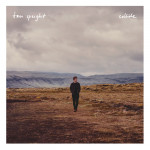
Connect to Tom Speight on
Facebook, Twitter, Instagram
Discover new music on Atwood Magazine
? © Tom Leishman
Collide
an album by Tom Speight
:: Tom Speight 2019 Tour ::
10/16 – Rockwood Music Hall – New York, NY
10/17 – Red Room, Cafe 939 – Boston, MA
10/19 – L’Escogriffe Bar Spectacle – Montreal, Canada
10/20 – The Drake Hotel – Toronto, Canada
10/21 – Schubas Tavern – Chicago, IL, US
10/24 – Café du Nord – San Francisco, CA, US
10/25 – Moroccan Lounge – Los Angeles, CA, US
tix & info @ tomspeightmusic.com

